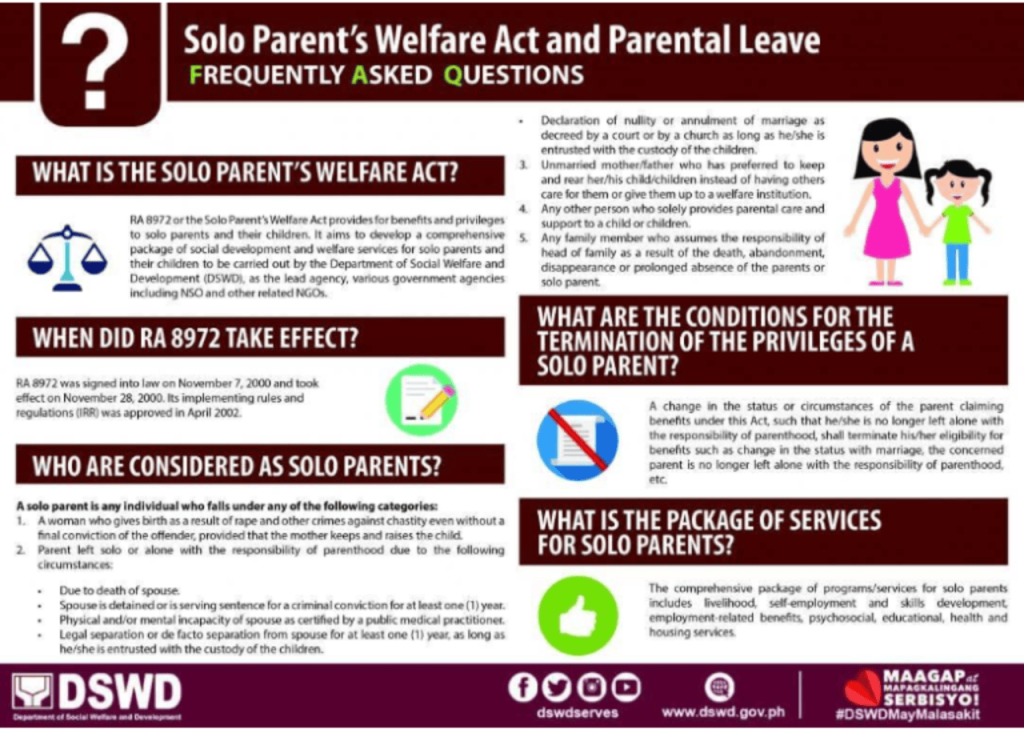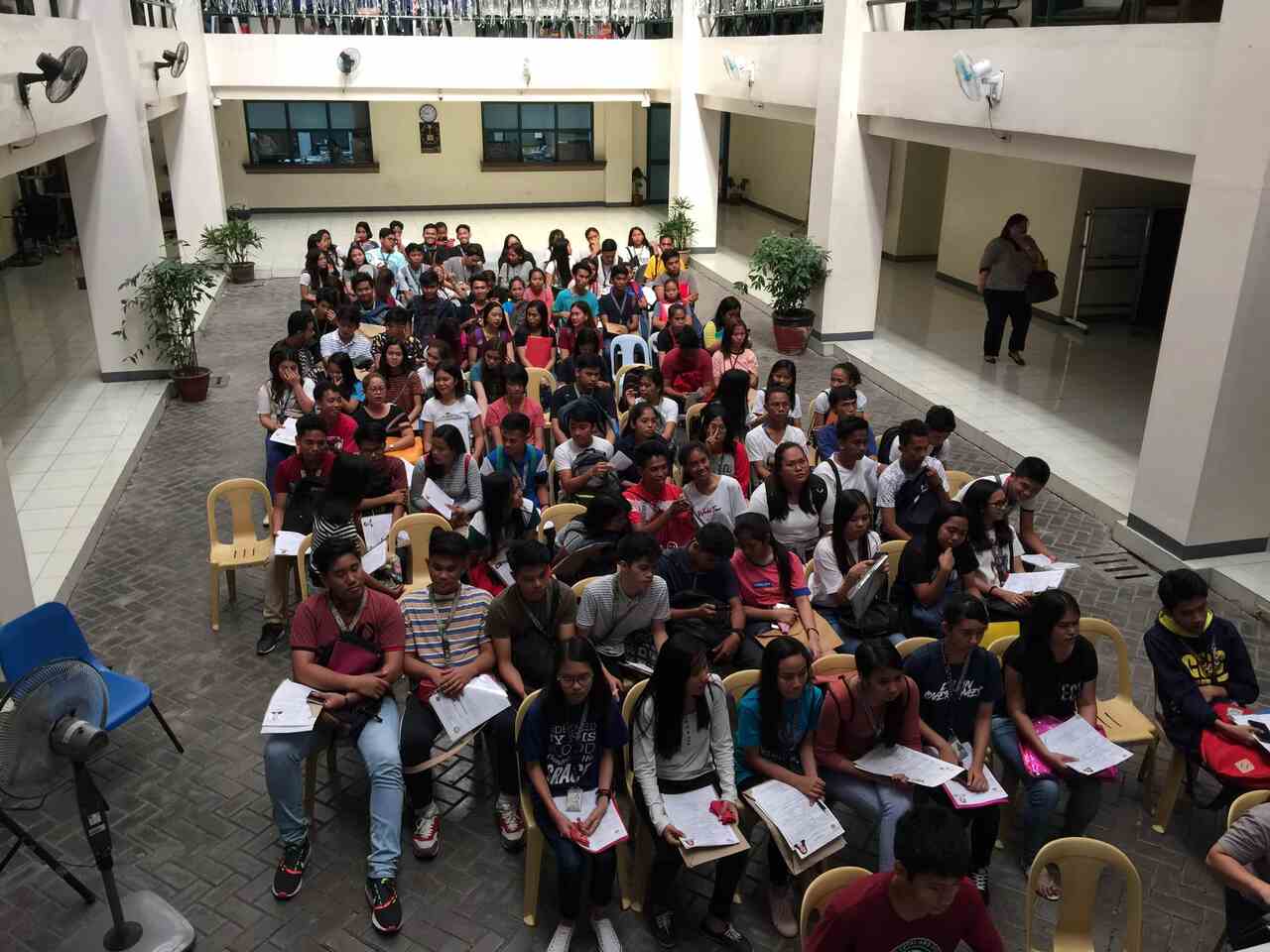The CHED Study Grant for Solo Parents and their Children is a government-funded scholarship program designed to support the educational needs of solo parents and their qualified dependents, helping them pursue higher education in recognized public or private colleges and universities. Established under the Solo Parents’ Welfare Act (Republic Act No. 8972) and strengthened by its amendment in Republic Act No. 11861 or the Expanded Solo Parents’ Welfare Act of 2022, the program is implemented by the Commission on Higher Education (CHED) in partnership with other government agencies. Its primary goal is to ease the financial burden of solo-parent households by providing access to quality tertiary education, thus promoting inclusive growth, social equity, and educational empowerment.
This program is one of the various ways that the government attempts to open up opportunities for marginalized families to break the cycle of poverty through education. If you are a solo parent or the child of one, struggling to pay for your education, this guide provides everything you need to know—from qualifications to application steps—to help you access this educational assistance and secure your future.
Program Overview

The CHED Study Grant Program for Solo Parents and their Children is part of CHED’s initiatives to offer financial assistance to marginalized groups, including solo parents and their dependents. Under this program, eligible Filipino students—either solo parents themselves or their children—can apply for grants to support their college education in any of the CHED-priority courses at selected state universities and colleges (SUCs) or recognized private higher education institutions.
Features and Benefits
By applying for the program, eligible beneficiaries can receive various forms of educational and financial assistance, including:
- Full or partial tuition and other school fee (tosf) coverage
- Monthly stipend or allowance for school-related expenses
- Book, transportation, and uniform allowance (as applicable)
- Priority access to support services such as counseling, academic advising, and career guidance
- Opportunities to participate in CHED-supported training, seminars, and capacity-building programs
Who Can Apply?
CHED has outlined two major groups who can qualify for this study grant:
- Solo Parents: To qualify as a solo parent applicant, you must meet the following requirements:
- Must be classified as a solo parent under RA 8972
- Must be a Filipino citizen in good moral standing
- Income must fall below the poverty threshold set by NEDA
- Must not be more than 40 years old at the time of application
- If a college freshman: Must have at least 80% general average in high school
- If in college: Must have at least 2.5 weighted average grade in the previous semester
- Must be enrolled or planning to enroll in CHED-priority courses in any state university/college or CHED-accredited institution
- Must not be enjoying any other government scholarship grant
- Must be physically fit
- Must have passed the school’s admission requirements
- Children of Solo Parents: Children of solo parents are also eligible for this financial assistance program, provided they meet these qualifications:
- Parent must be a certified solo parent under RA 8972
- Family income must be below the poverty threshold
- Must be a Filipino citizen with good moral character
- Must be 18 years old or below at the time of application
- Must be enrolled or planning to enroll in a CHED-priority course
- Not currently receiving any government scholarship grant
- Must pass the admission requirements of the chosen institution
Income Criteria
To be eligible for this educational assistance, the combined annual gross income of the applicant (or applicant’s family) must not exceed PHP 400,000. If the income goes over this amount, the applicant can still qualify by providing documents that justify special circumstances such as:
- Medical expenses for a family member
- Having two or more siblings currently enrolled in college
Where to Study
Applicants must be enrolled (or plan to enroll) in one of the CHED-priority courses in a recognized state university, college, or CHED-selected institution. These include but are not limited to:
- Science and Technology
- Engineering
- Mathematics
- Agriculture
- Fisheries
- Teacher Education
- Health-related disciplines
Note: Only schools with Certificates of Program Compliance (COPCs) or accredited Local Universities and Colleges (LUCs) are considered eligible.
Required Documents
Applicants must submit the following documentary requirements:
For All Applicants
- Certified Birth Certificate
- Certification of Good Moral Character from the barangay
- Certificate of Good Health
- Notice of Admission from the school of choice
- Solo Parent ID
If Incoming Freshman
- Form 138 (Report Card)
If Already in College
- Transcript of Records
Financial Requirements
- Latest Income Tax Return (ITR) or Certificate of Tax Exemption from the BIR
- Or a Certificate of Indigence from the barangay or DSWD
- Or a Case Study Report from DSWD
- Or Proof of income (e.g., remittance slip or contract) for children of OFWs/seafarers
Additional Requirements
- Affidavit stating that the applicant is a solo parent or child of a solo parent
- DSWD certification confirming solo parent status
- Other standard documents required by the CHED Office of Student Services
Application Process
To apply, here’s a step-by-step guide that you can follow:
Step 1. Prepare All Required Documents
Collect and organize all documents listed above. Double-check for completeness.
Step 2. Download and Fill Out Application Form (Annex A)
Available through your local CHED Regional Office (CHEDRO) or their official website.
Step 3. Submit Application
You may submit the application:
- In person at the nearest CHEDRO
- Online via email (in PDF format)
- Through courier service
Step 4. CHEDRO Review and Ranking
CHED will evaluate your documents and rank applicants based on academic performance and financial need.
Step 5. Receive Notice of Award (NOA)
Qualified applicants will receive a Notice of Award via email or through their HEI.
Step 6. Accept or Waive the Award
Accept by signing the return slip and submitting it back within 30 working days.
Note: If you decide not to pursue it, write “Waived” on the form and return it to CHED.
Ranking and Slot Allocation
Now, not everyone can actually avail of this grant. In fact, there are limited slots for this CHED study grant which are regionally distributed based on:
- Number of secondary graduates
- Poverty incidence
- Share of poor high school graduates per region
That said, they employ a ranking system which was designed to give preference to applicants with higher academic standing and greater financial need. On that note, those who belong to special groups like solo parents, PWDs, and Indigenous Peoples groups may be given additional consideration.
Terms and Conditions
If the solo parent’s status changes (e.g., they are no longer the sole caregiver), the applicant’s eligibility may be withdrawn. Make sure to always inform CHED of any significant changes in your family or income status.
Video: CHED Scholarship Program
Getting educational assistance through the CHED Study Grant Program for Solo Parents and Their Children can significantly lighten the burden of tuition and school expenses. If you or your parent qualifies under the solo parent category, don’t miss this chance to get the financial support you need to complete your studies. To learn more, watch this video below:
Contact Information
For concerns or more details, you may reach out to:
Dr. Isabel Inlayo
- Director IV, Office of Student Services
- Commission on Higher Education
- Telephone: (02) 382-5473, local 110
For more updated information and other concerns, you may also reach out to your CHED Regional Office.
